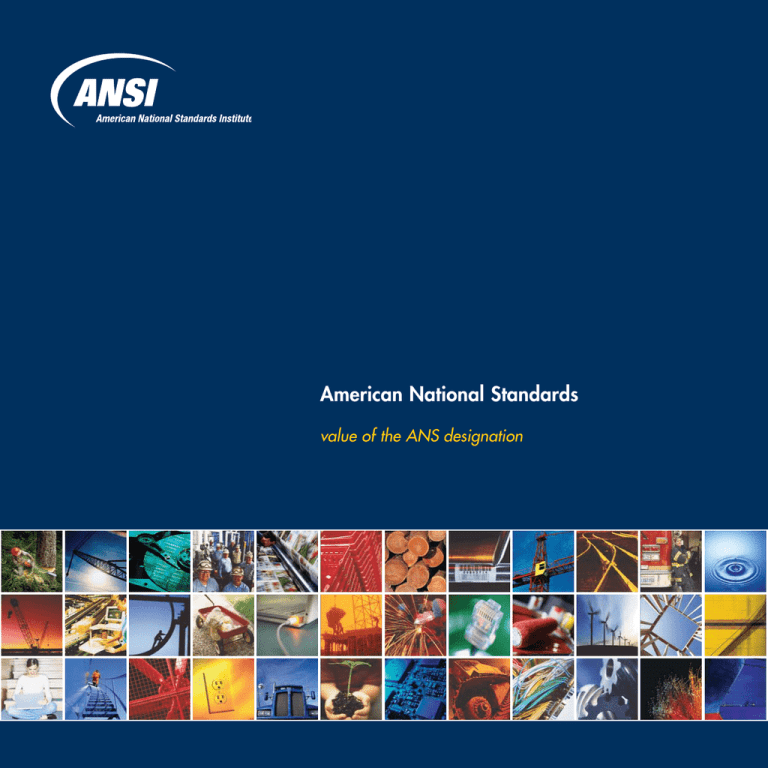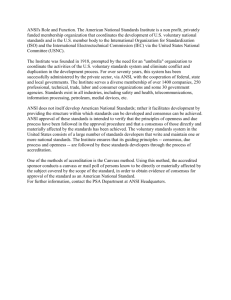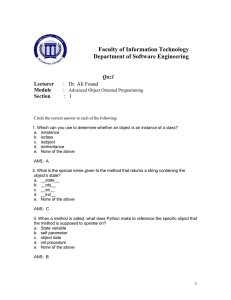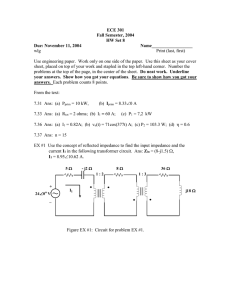value of the ANS designation - American National Standards Institute
advertisement

American National Standards value of the ANS designation accreditation and approval The American National Standards Institute (ANSI) coordinates, facilitates, and promotes the development of voluntary consensus standards that are relied upon by industry, government agencies, and consumers across the United States and around the world. ANSI fosters the U.S. standardization system by accrediting the procedures of standard-setting organizations and subsequently approving individual documents as American National Standards (ANS). Nearly 220 ANSI-Accredited Standards Developers are now engaged in the creation and maintenance of voluntary consensus standards that are being used in virtually every industry sector. These standards developers — and the experts that populate them — work cooperatively to enhance the U.S. quality of life and improve the competitiveness of businesses operating in the global marketplace. A standard that has been approved as an ANS is identified as such on the document’s cover or in its introductory text. Many ANS also include “ANSI” in their unique identifying designations. hallmarks of the ANS process An American National Standard (ANS) is a document that has been sponsored by an ANSI-Accredited Standards Developer, achieved consensus, met ANSI’s Essential Requirements, and been approved by the Institute. The hallmarks of this process ensure that American National Standards are developed in a manner that is equitable, accessible, and responsive: Participation is open to all interested stakeholders Balance of interests shall be sought Consensus must be reached by representatives from materially affected and interested parties in an environment that is free from dominance by any party Standards are required to undergo public reviews during which any member of the public may comment Comments from the consensus body and public review period must be responded to in writing All unresolved objections, attempts at resolution, and substantive changes to text are provided to the ANS consensus body for review prior to final vote An appeals process through the standards developer to address procedural concerns is required public and national benefit fairness From the very first American National Standard (ANS) on pipe ANSI-accredited standards developers conduct their work in a threads to work that is underway today to meet emerging needs and manner that is open to public scrutiny and that provides every priorities, ANSI-approved standards provide tremendous benefit to stakeholder with an opportunity to be heard, without dominance society and the global economy. This work spans a broad spectrum by any party. of industries: from nanotechnology and energy efficiency to telecommunications and the rapidly expanding service sector, the reach and influence of the standardization community is pervasive. Adherence to the ANSI Essential Requirements: Due process requirements for American National Standards results in a level playing field for all stakeholders, contributing to the development Participation by a standards developer in the ANS process signifies of standards that benefit those who participate in the process, the a commitment to the creation of high-quality, market-driven general public, and the nation. standards in an open environment characterized by due process and ANSI’s neutral third party oversight. ANS set benchmarks for quality and performance that help to protect the public interest and ANSI-Accredited Standards Developers offer processes that meet the Institute’s requirements for: foster commerce by influencing the design, manufacture, marketing, I openness I balance distribution, and safe use of products and processes worldwide. I due process I consensus I lack of dominance Accreditation by ANSI as a standards developer represents a public market recognition Success is measured by recognition, usage, and acceptance. statement of the value placed on an open and equitable consensus development process. Standards developers that choose to participate in this arena are By reflecting generally accepted technology, ANS dramatically dedicated to advancing voluntary consensus standardization increase market efficiency by providing a basis upon which buyers interests within the U.S. and globally. and sellers agree to certain product and service parameters. Due process is key to ensuring that American National Standards For example, in the information technology sector, standards are are developed in an environment that is fair, accessible, and relied upon to assure the interoperability of devices and systems. responsive to the needs of affected stakeholders. Without ANS, unnecessary inefficiencies and costs could result. All ANSI-Accredited Standards Developers and all American Similarly, U.S. consumer product safety standards are widely used National Standards are subject to ANSI’s neutral third-party as models for other national, regional, and international efforts. oversight via the ANSI Audit Program. Other checks and balances Products and services that comply with ANS can be expected to in place include appeals provisions, periodic review of procedures, gain greater market recognition, acceptance, and use, thereby and regular attestations by developers of compliance with ANSI’s benefitting both consumers and implementers of the standards. procedural requirements. mark of quality a tool for government Quality is a key facet of value for any potential customer purchasing One of the best examples of confidence in the ANS designation is goods or using services. Although there are different definitions of the National Technology Transfer and Advancement Act of 1995 quality, by any name it has been documented as a determining (NTTAA), Public Law 104-113. factor for buyers and users of American National Standards. This law requires all federal government agencies to use, wherever If “conformance to requirements” is the benchmark for quality, feasible, standards developed or adopted by voluntary consensus ANSI’s Essential Requirements provide confidence in a due process standards bodies in lieu of developing government-unique that includes openness, balance, public notification, coordination, standards or regulations. The NTTAA also requires government consideration of views, consensus, and appeals. agencies to participate in standards development processes, given For those who see quality as “fitness for intended use,” thousands of ANS have been developed and approved with testaments to their credibility, consistency, and acceptance. Where “meeting or exceeding customer expectations” is the definition of quality, the ANS designation has been characterized by such terms as “integrity,” “level playing field,” “broad support,” and “responsive to market needs.” legal safeguards that such involvement is in keeping with an agency’s mission and budget priorities. OMB Circular A-119, which provides guidance to federal agencies on the implementation of the NTTAA, recognizes that the attributes of voluntary consensus standards bodies include openness, balance, consensus, due process, and appeals — all the hallmarks of the ANS process. According to the circular, voluntary consensus standards help the government by: I increasing operational efficiency, I reducing regulatory compliance and procurement costs, I avoiding duplication of effort caused by having separate Compliance with the ANS process requires an open and due process-based system that may help standards developers avoid private sector and government-unique solutions, I antitrust and tort liability problems. ANSI’s neutral oversight through technology and expertise in establishing standards that serve the Audit Program and Board of Standards Review establishes credibility for the ANS designation while supporting a system where all parties — including those with technical comments on content — have the right to participate in standards development. enabling the government to take advantage of private sector national needs, and I contributing to economic prosperity and growth. Since the NTTAA became law, there has been a sizable increase in government reliance on voluntary consensus standards — from The Standards Development Organization Advancement Act of the 9-11 Commission’s endorsement of an ANS for disaster 2004 extends certain protections, including a limitation on and emergency management to the Consumer Product Safety antitrust liability, to organizations whose procedures incorporate Improvement Act of 2008, which mandates compliance with ANS openness, balance, due process, appeals, and consensus. for all-terrain vehicles and toy safety. The American National Standards Institute (ANSI) is a private non-profit organization whose mission is to enhance U.S. global competitiveness and the American quality of life by promoting, facilitating, and safeguarding the integrity of the voluntary standardization and conformity assessment system. Comprised of organizations, government agencies, companies, academic and international bodies, and individuals, ANSI represents the interests of more than 125,000 companies and 3.5 million professionals worldwide. The Institute is the official U.S. representative to the International Organization for Standardization (ISO) and, via the U.S. National Committee, the International Electrotechnical Commission (IEC), and is a U.S. representative to the International Accreditation Forum (IAF). ANSI currently has offices in New York City and Washington, DC. MORE INFORMATION American National Standards Institute 25 W. 43rd Street, Fourth Floor New York, NY 10036 T: 212.642.4900 F: 212.398.0023 E: psa@ansi.org www.ansi.org


